Ms. Nguyen Thuy Van (Suoi Tu village, Thang Hai commune, Ham Tan district) has grown more than 1 hectare of longans and other fruits such as jackfruit, custard apple, etc. Her family gathers an average of nearly a ton of fruit daily during the busiest time of the harvest. However, as with many other farmers, the vicious cycle of "good harvest equals price loss" and vice versa is inevitable for Ms. Van. Especially with the COVID-19 pandemic breaking out dramatically in the last 3 years, the consumption of agricultural products in general and longans in particular, has been greatly affected. Due to this circumstance, selling prices fluctuated over time. Even the local government had to step in at some point to encourage consumption support.
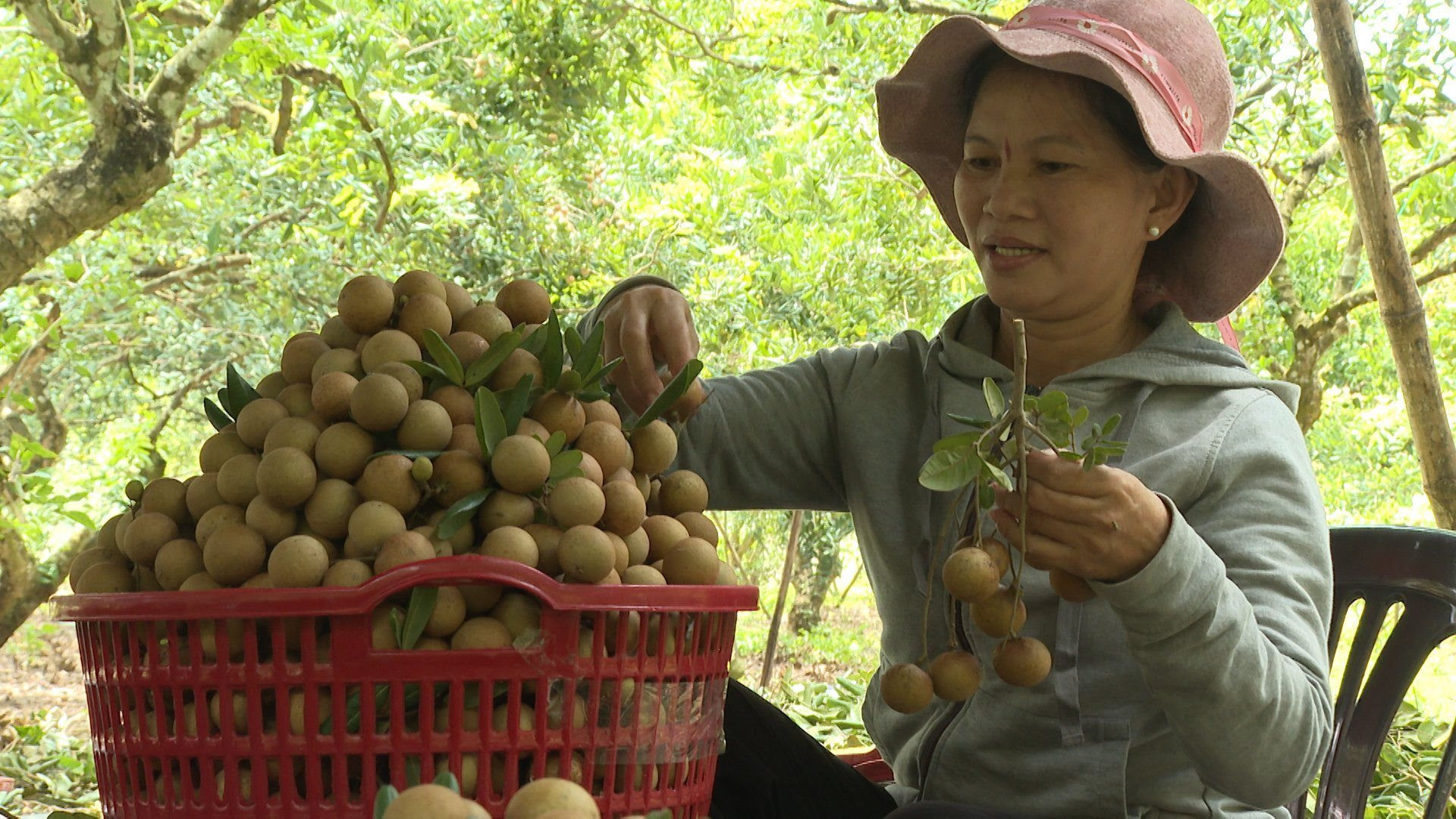
"Farmers' inability to regulate their output and reliance on dealers provide a challenge. The longans must be harvested and sold even though they are not profitable because they have already rotted to the root", said Ms. Van.
Since then, Ms. Van has considered solutions to preserve fruits that have not been sold for a longer period of time, at this point the business idea of dried longans was born. "The key to expanding the possibilities for Thang Hai's longans is drying. This approach will enable me and many other farmers to actively decide the value of our labor based on the product's value", Mrs. Van remarked.
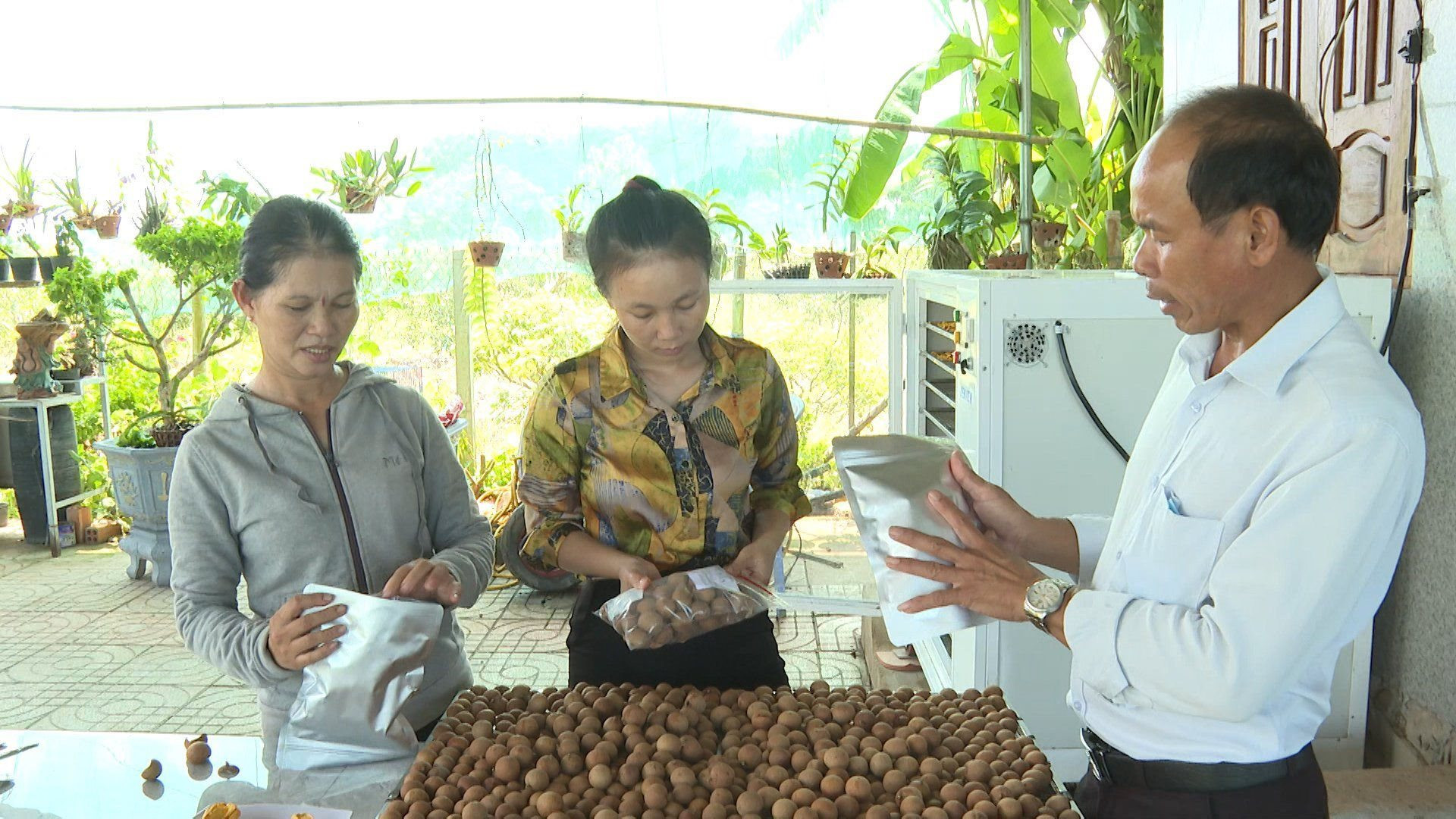
The local authorities also give attention and interest to the method of Ms. Van’s family.
Ms. Van turned her words into action by investing in machinery and equipment in 2021 to make her initiative a reality. She thus named her product "Dong Van dried longans". According to Ms. Van, it took one batch of longans 35 hours to dry, using 100 kilograms of fresh longans each time, yielding a final weight of 20 to 25 kilograms of dried longans with shells. "This strategy has benefited my family with more than 1 hectare of longans. We are no longer reliant on consumption support. We can pick and dry them as soon as they are ripe. Furthermore, I also help to dry longans for many local women when their own cannot be sold during the height of harvest.”, added Ms. Van.
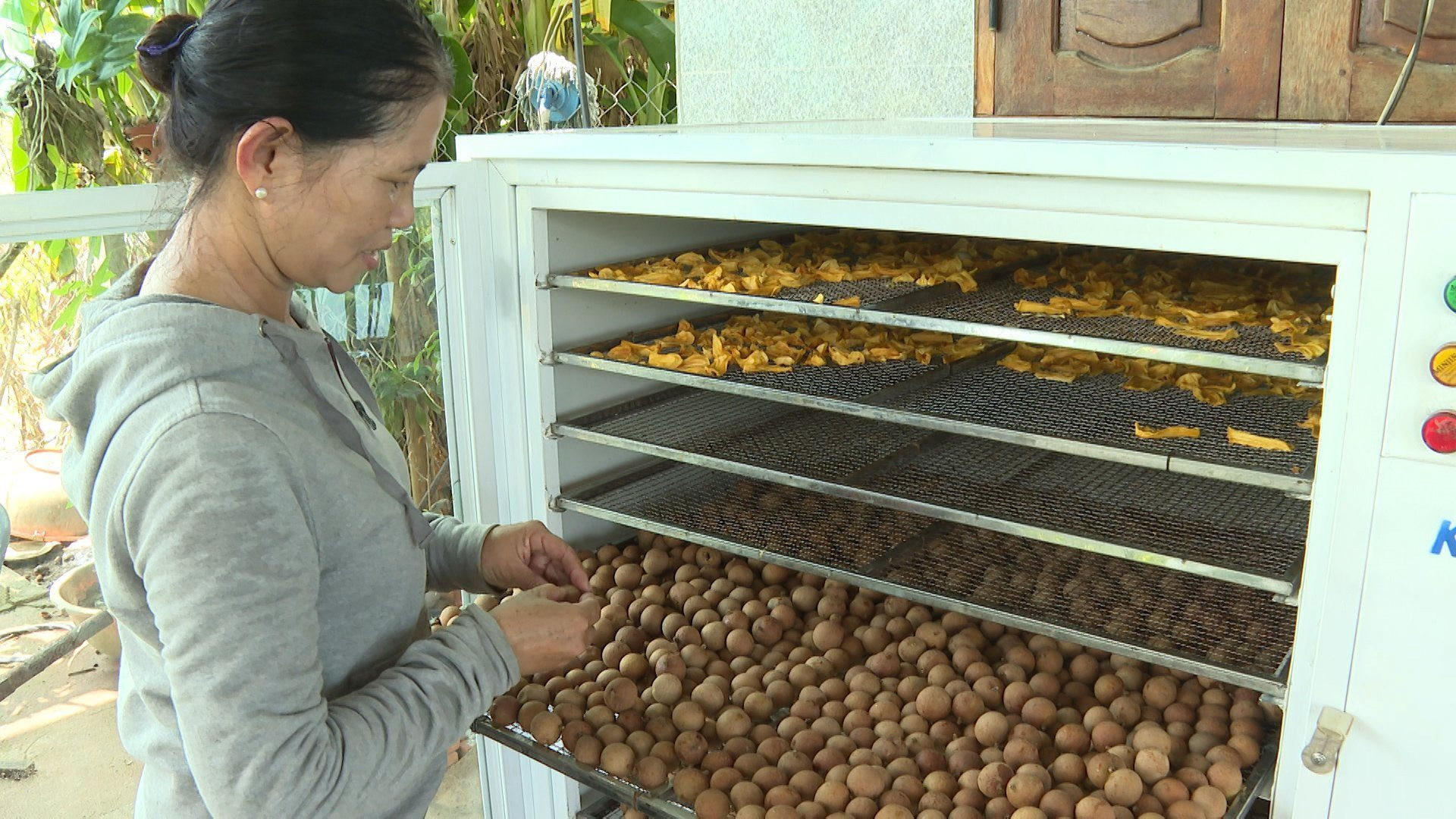
According to Ms. Van, in the first year, she supplied the market with approximately 1 ton of dried longans, which are mainly sold to small traders in some traditional markets in Ham Tan district, La Gi Town, and the border markets of Ba Ria-Vung Tau province. At the same time, via her relatives, Ms. Van also consigned dozens of kilograms of dried longans to be offered in the Japanese, American, and Canadian markets. Ms. Van expects that starting in the second year, she will increase the output of dried longan products by 500 kilograms in order to alleviate the pressure of consuming fresh longans during the peak of harvest. "At the moment, the selling price of dried longans ranges from 100.000 to 120.000 VND/kilogram, which is 15.000 VND/kilogram lower than in other places, thanks to the source of locally produced materials, better quality and food safety are guaranteed," Ms. Van explained.
Ms. Doan Thi Song Huong, Chairwoman of Thang Hai Commune Women's Union, Ham Tan District, stated that Ms. Van's family's "Dong Van dried longan" product is cultivated according to VietGAP standards, and is located in Thang Hai commune's planned longan cultivation area. It also has a certificate of geographical indication and 3-star OCOP product certification from Binh Thuan province. Ms. Van and some longan farmers are currently working to establish the Thang Hai Agricultural Service Cooperative, which aims to connect the input supply chain and find outputs for specific local agricultural products.
In the context of the current epidemic, the output of fresh agricultural products will certainly be substantially affected. As a result, deep processing and exploring new directions, despite difficult access, remain critical to opening a wider path for agricultural products and growers. And Ms. Van is the one who slowly unlocks that key.

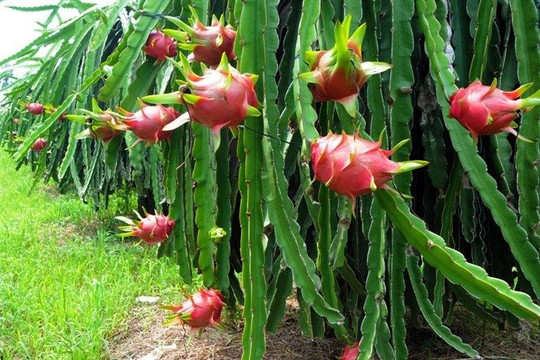



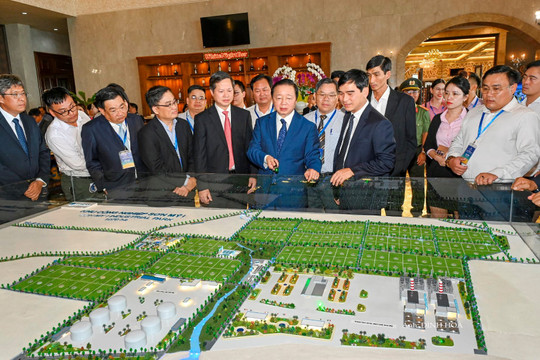


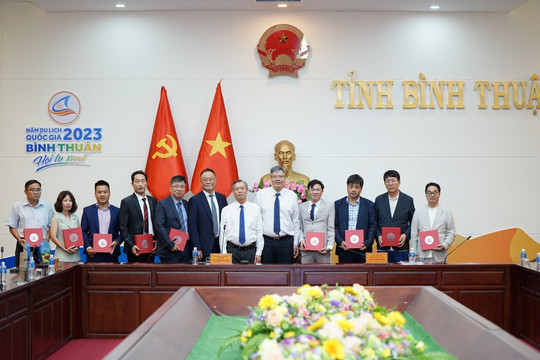
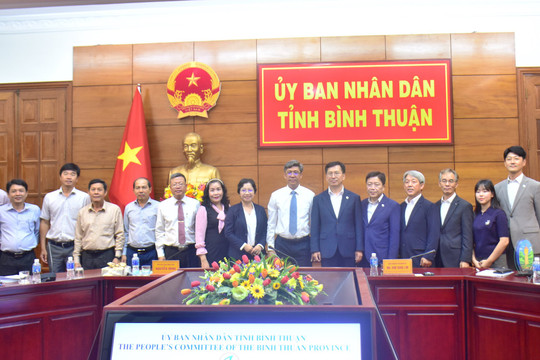



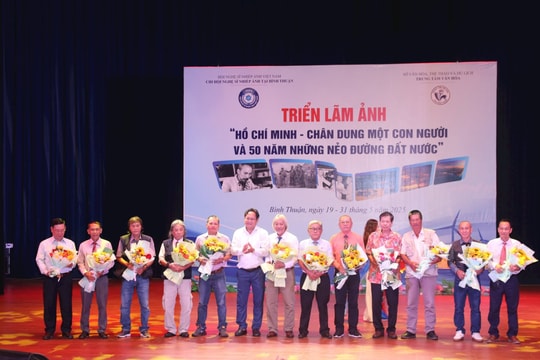


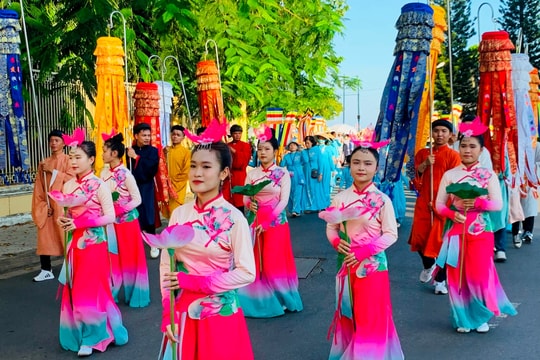



.jpg)


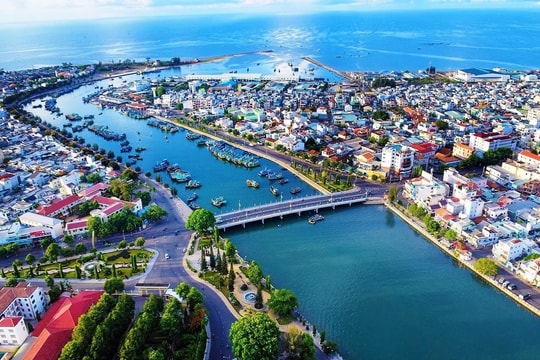


.jpeg)

.jpeg)


.jpeg)




